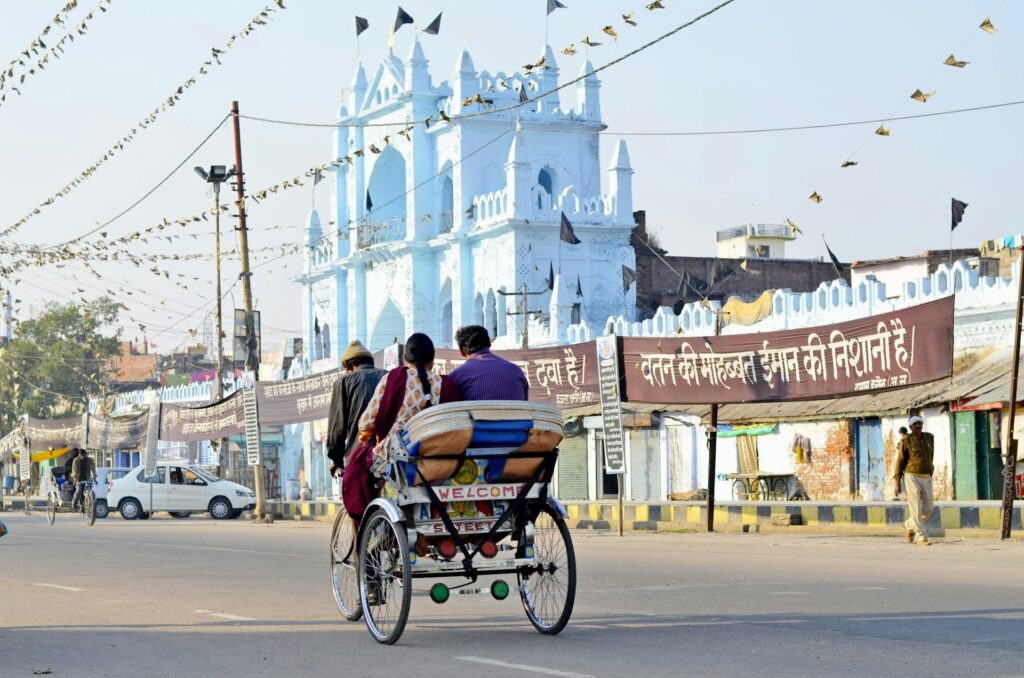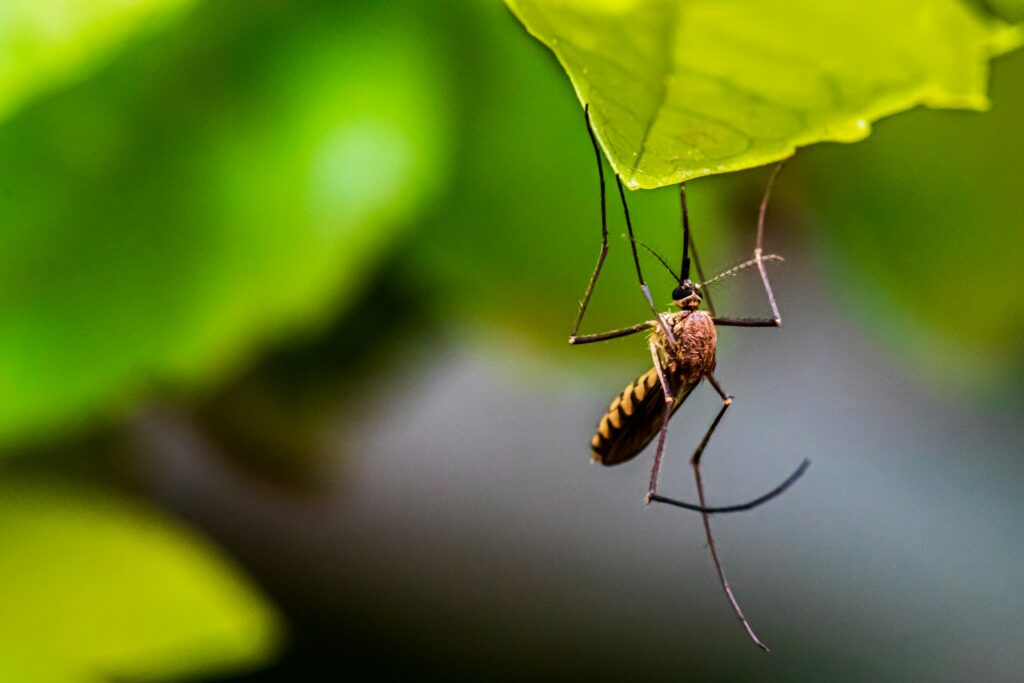A top concern for travelers heading to Vietnam is typhoid fever (a bacterial infection that spreads through contaminated food and water).
Risk levels are especially high in areas with lower sanitation standards – making it crucial to prepare ahead of time.
In this article, we’ll go over the essential steps and precautions you should take to avoid typhoid fever during your trip to Vietnam.
1. First, Understand How It Spreads
Caused by the bacterium Salmonella Typhi – the infection is primarily transmitted through contaminated food or water.
The risk of contracting typhoid fever is higher in areas with poor sanitation or where clean drinking water isn’t always available – and Vietnam, with its mix of urban and rural environments, poses some risk to travelers.
Keep in mind:
- Rural areas may lack the water filtration systems that help keep food and water safe.
- While large cities like Hanoi and Ho Chi Minh City generally have higher sanitation standards, even urban areas aren’t completely free from risk.
- Street food markets, often a “traveler-favorite” experience, can also present higher risks (because of handling and preparation methods).
2. Get A Typhoid Fever Vaccine Before Traveling
The most effective way to protect yourself from typhoid fever is by getting vaccinated before your trip.
The vaccine isn’t mandatory for entering Vietnam, but it’s highly recommended by the CDC – especially if you plan on staying with locals, venturing into rural areas, or enjoying street food (which is hard to resist!).
Online Typhoid Vaccine (Oral) ➜
There are two main types of vaccines – the oral vaccine and the injectable vaccine:
- The oral vaccine comes in capsule form, taken over a week, and offers protection for up to five years.
- The injectable version is a single shot but only lasts for two years.
If you want more convenience and longer protection, many travelers prefer the oral vaccine. You can get the oral vaccine delivered to your door with an online consultation with Runway Health – saving you the time & hassle, compared to in-person clinic visits.
3. Be Cautious with Vietnam’s Food and Water
One of the most important steps to avoid typhoid fever in Vietnam is being extremely careful with what you eat and drink.
The bacteria are commonly spread through contaminated food and water, so it’s crucial to make informed choices.
- Drink bottled or boiled water: Avoid tap water, even for brushing your teeth. Always go for bottled water, and ensure the seal is intact before drinking. Alternatively, boil water to make sure it’s safe.
- Avoid ice: Ice can be made from contaminated water. Stick to drinks without ice unless you’re in a place where you know it’s made from purified water.
- Be mindful of street food: Street food is part of the cultural experience in Vietnam, but it can be risky. Choose stalls that look clean, where food is freshly cooked and served hot. Avoid anything that looks undercooked or has been sitting out for a while.
4. Stay Disciplined on Proper Hygiene
It’s easy to overlook, but basic hygiene can go a long way in preventing illness.
Washing your hands frequently – especially before eating and after using the bathroom – is one of the simplest but most effective ways to protect yourself from typhoid fever and other gastrointestinal illnesses.
If soap and water aren’t available, make sure you have hand sanitizer (with at least 60% alcohol) handy. You might even want to carry some antibacterial wipes for those moments when you need a quick cleanup.
5. Stick to Safe Foods
In Vietnam, it’s not just what you drink that matters – what you eat is just as important. Here are some practical tips to avoid foodborne illnesses, including typhoid fever:
- Eat fruits you can peel: Stick to fruits like bananas, oranges, or mangoes that you can peel yourself. This way, you’re avoiding any bacteria that may have been on the outer surface.
- Avoid raw or undercooked foods: Especially avoid raw shellfish, which can be a common carrier of bacteria. Stick to cooked foods, especially in places where hygiene practices may not be up to your usual standards.
- Go for hot meals: Opt for meals that are freshly prepared and served hot. Bacteria can grow in food that’s been sitting out at room temperature, so piping hot meals are generally safer.
6. Be Aware of Symptoms and Act Quickly
Despite taking precautions, there’s always a small chance you could still contract typhoid fever.
The sooner you can recognize the symptoms, the better your chances of seeking medical treatment early and preventing serious complications.
Common symptoms of typhoid fever include:
- High, prolonged fever
- Stomach pain and discomfort
- Weakness and fatigue
- Headaches
- Diarrhea or constipation
- Loss of appetite
Symptoms typically develop 1-3 weeks after exposure. If you experience any of these symptoms while in Vietnam, seek medical attention as soon as possible. Vietnam’s major cities have medical facilities that can diagnose and treat typhoid fever, but access to healthcare may be limited in rural areas, so it’s good to know where the nearest hospital is in advance.
7. Pack a Travel Health Kit
When you’re preparing for a trip to Vietnam, consider packing a travel health kit with essentials to help protect you from typhoid fever and other travel-related illnesses. Your kit might include:
- Hand sanitizer: For moments when soap and water aren’t available.
- Antibacterial wipes: Useful for wiping down surfaces, especially if you’re eating street food or dining in less hygienic environments.
- Oral rehydration salts: If you experience diarrhea, staying hydrated is crucial. Oral rehydration salts can help replenish lost fluids and electrolytes.
- Bottled water: Always keep bottled water handy for drinking and brushing your teeth.
To summarize:
Typhoid fever is a serious health risk for travelers to Vietnam, but with the right precautions, it can be avoided.
Getting vaccinated before your trip, being mindful of food and water, and maintaining good hygiene are your best defenses. If you’re deciding between the oral or injectable vaccine, the oral vaccine tends to be more convenient and offers longer-lasting protection.
For those looking for a simple, hassle-free way to get vaccinated, platforms like Runway Health make it easy to get the oral vaccine delivered straight to your door, saving you from the need to visit a clinic.
Remember – it’s better to take precautions and protect your health so you can fully enjoy your trip to Vietnam, without worrying about getting sick.

